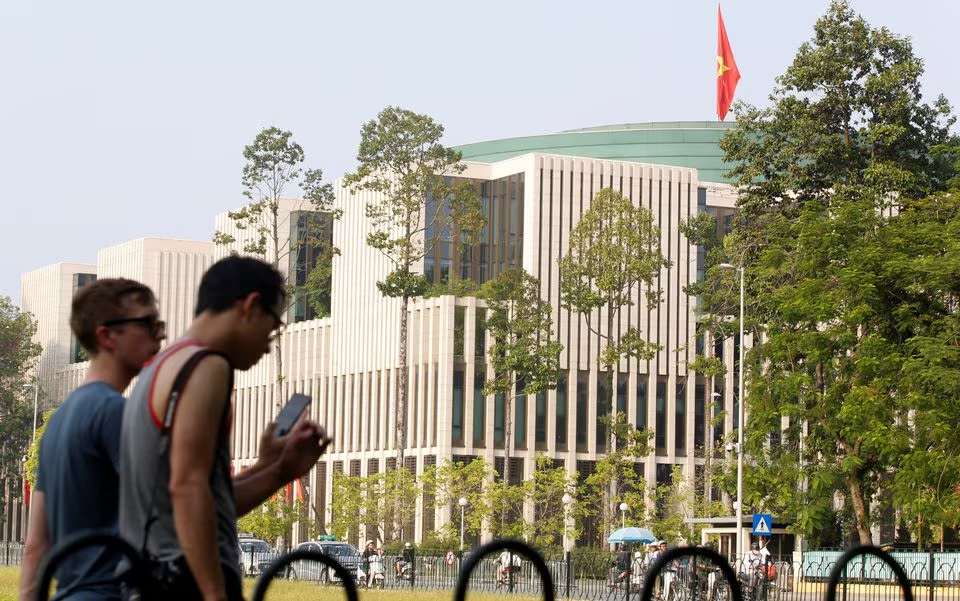HANOI -- Vietnam will raise its effective tax rate applied to Samsung and other multinationals to 15% from January as part of a global tax reform, its legislature decided on Wednesday though it delayed measures to offset the higher levy.
New incentives for high-tech investors also are expected to be agreed at a later stage, but the delay has raised concerns about future foreign investments on which the country is highly reliant, experts said.
The new tax regime will come into force from Jan. 1, 2024.
"The National Assembly is not issuing a separate resolution on investment incentives at this time," said Le Quang Manh, head of the assembly's financial commission, adding that the government would work on specific incentives in 2024.
Vietnam's corporate income tax is already set at 20%, but the country has offered for years much lower effective rates to large foreign investors.
With the new rate, 122 foreign companies will face a steep increase in their tax costs, according to a document prepared by the Vietnamese government, which estimated the additional intake for the state at VND14.6 trillion ($601 million) a year.
A large portion of the additional tax bill is expected to be shouldered by Samsung alone.
Its multi-billion-dollar revenues from its Vietnamese factories are the largest in the country, according to one person involved in the preparation of the new incentives.
The South Korean electronics giant, which assembles half of its smartphones in Vietnam, paid as little as 5.1% in tax in 2019 in one of the Vietnamese provinces where it has operations.
Samsung did not respond to Reuters queries on the tax earlier this week.

















































